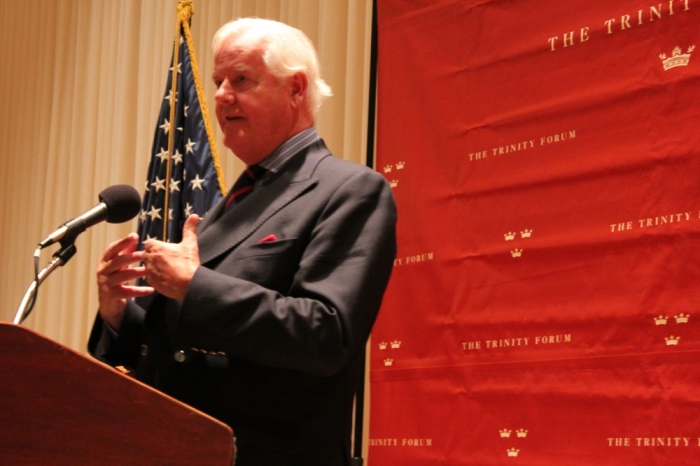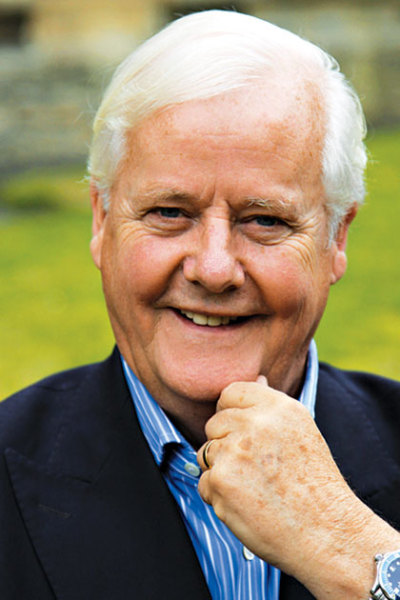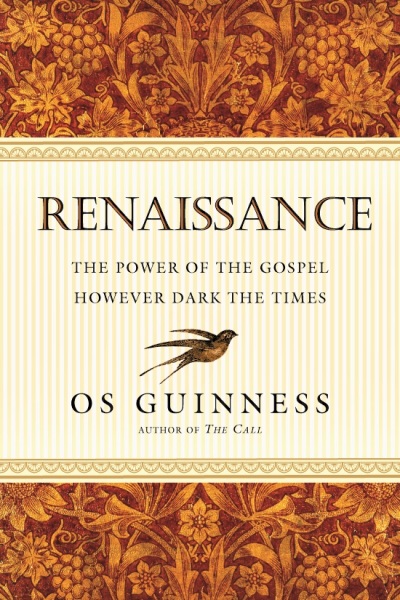The Gospel Can Transform Culture No Matter How Dark the Times, Os Guinness Says in New Book (CP Interview)

The Gospel of Jesus Christ has a transforming effect when it is lived out personally, but when the Church tries to do God's work in the world's ways, it is weak, Os Guinness explained in his new book, Renaissance: The Power of the Gospel However Dark the Times.

In a Sept. 12 interview with The Christian Post, Guinness argued that Christians in America are too worldly, and if they learn to follow the Gospel and be in the world but not of the world, that will have the power to transform the culture.
Guinness is a popular Evangelical author and speaker, and has written over 30 books. He also founded The Trinity Forum and was on the steering committee for the 2008 "Evangelical Manifesto." CP previously interviewed Guinness about his 2012 book, A Free People's Suicide, and his 2013 book, The Global Public Square.
"God's work must always be done in God's way to see results that are worthy of God's reality and greatness," Guinness wrote. It is a theme he repeats throughout the book. To be culture forming, or transforming, Guinness says, Christians cannot do God's work in worldly ways.
In chapter three, he points to Jesus as an example. Jesus changed the world, but He did it in ways the world never imagined.
"What were the odds," Guinness wrote, "that a rural carpenter's son from an obscure backwater of the Roman Empire would outshine the pride and glory of the greatest emperor and the mightiest warrior captains of history? How likely was it that the birthday of a man viewed as a disgraced and executed provincial criminal would come to mark the year that for most of the world divides all history?"
In his CP interview, Guinness used the Christian Right as an example of how Christians have done God's work in the world's ways, with poor results. He also spoke about his next book, due next year, on the topic of persuasion, and how he decides what topic to write about next.
Here is a transcript of the interview, edited for length and clarity:
CP: In the midst of what many believe to be dark times, you're optimistic about the future, but argue for realism alongside your optimism. Why?
Guinness: I always doubt the question of optimism versus pessimism because it's either psychological or it's a matter of the market (is it bearish or bullish?) Certain people are, psychologically, inveterate optimists, the glass is always half-full.
I think as Christians we should be realistic, in the sense, we want the truth of the situation. But, however dark the times are, the Christian gospel always ends with hope. So I certainly try to follow that.
One way I put it is, many of the generalizations about our world and our culture are right, and they're depressing, but many of the exceptions, the new things that are happening, are very encouraging.
I have no idea which way it's going. In the global era, are we moving towards a dark age for humanity, typified by what we see in the Middle East now with the Islamic State, or are we headed toward something much more optimistic, or are we just going to muddle along somewhere in between? I don't know. The Lord knows. But our trust is in the Gospel, and that's what the book is about.

CP: In scripture, "kingdom of God" is used in both the present tense and the future tense. What do you make of that?
Guinness: I've always understood that the Kingdom has arrived and the Kingdom will come in its fullness when Jesus comes. But that doesn't leave us with an excuse about doing nothing. No.
And I would argue that in this country, America, Christians, numerically, are still incredibly strong. We're a huge majority. But we are culturally weak.
Tiny groups like, say, the gays and lesbians or the Jewish people, they're tiny — less than two percent of Americans for Jews, maybe three percent of Americans for gays. But they have more cultural influence than we do, for all our majority. And the reason is that we are weak because we are worldly. We are shaped more by American culture than by the Gospel and that is our problem.
CP: And so you argue in the book that we need to be more shaped by the Gospel than the world.
Guinness: Yes. But then I go on to argue, why is it that the Gospel transforms culture? And that's the key thing, that we have confidence in how the Gospel works and how the Kingdom spreads.
We can be sure, if we are faithful and obedient and live [the Gospel] out in our time, it will have the transforming effect it's always had, not only in transforming individual lives but transforming cultures, societies, maybe even the roots of civilization. We don't know. But we if we live the Gospel, it always has power.
CP: The Kingdom is here and the Kingdom is coming. When you look at the history of the Church, it has gone through good times and dark times. Why isn't that path more of a straight upward trajectory, instead of going up and down? What does that tell you?
Guinness: Simply because of sin. Or, to put more comprehensively, the presence of sin, the passing of time, and what you see from the Bible, the primacy of the heart.
When the heart turns away, the whole thing can go wrong. So, "this too shall pass," is not only entropy, in a sense, but a rise and fall, not only in nations, but also the Church. And I think, in many ways, I often say, we are in an Augustinian moment. You could equally say the shallowness of Evangelicalism is equivalent to the corruption of the Church before the Reformation, the time of the Renaissance.
We need renewal, reformation, revival, what I've called renaissance. Because we're in bad shape.



























